I’m very glad I learned about InspireHealth and could go and see them when I was in Victoria for radiation treatments. InspireHealth is accessible to anyone online but I was pleased to be not that far away so I could walk over to see a nutritionist one day. (They also have locations in Vancouver and Kelowna.)
Usually diets are about taking things away. I got to add things! I now add ground flax seeds (considered a “superfood”) and a spoon of almond butter, “a healthy fat,” to my smoothie in the morning. And I’ve decided to throw in some kale as it’s a magnesium-rich food.
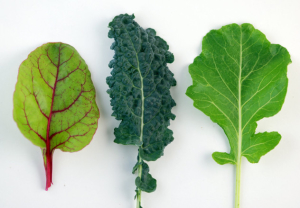 InspireHealth offers “integrative cancer care” and memberships are free right now for all residents of Vancouver Island and the Gulf Islands. Anyone with a new or past cancer diagnosis can become a member and take advantages of classes, consultations and webinars thanks to the B.C. Ministry of Health and a generous community grant from the Victoria Foundation.
InspireHealth offers “integrative cancer care” and memberships are free right now for all residents of Vancouver Island and the Gulf Islands. Anyone with a new or past cancer diagnosis can become a member and take advantages of classes, consultations and webinars thanks to the B.C. Ministry of Health and a generous community grant from the Victoria Foundation.
InspireHealth follows an Integrative Cancer Care Model that includes spiritual support, nutrition, vitamins and supplements; exercise; stress reduction; adequate rest and sleep; emotional support, meditation, yoga. All of these approaches are complementary to surgery, chemotherapy and radiation.
I said to one of my friends one day as she dropped me off at the Cancer Society Lodge in Victoria: “Do I look like someone with cancer?”
Arleen said, “We all have cancer.” Right, that’s true. As the late Dr. Candace Pert wrote: “Right now, as you’re sitting in your chair, tiny cancer cells are running amok in your body, multiplying into mini tumors because of errant DNA messages they may have evolved. But because you have a healthy immune system, natural killer cells swarm into attack and kill those runaway cells, preventing them from forming tumors and travelling throughout your body However, when there’s an overabundance of toxic residue for the immune system to clean up, it may fail to do its job, leaving unpoliced cancer cells to escape under the radar, proliferate, and become full-blown metastasizing tumors.” (from Everything You Need to Feel Go(o)d.)
 Dr. Pert believed that tumor progression – or regression – could be highly affected by attitude. She didn’t abide by the notion though that people’s thought patterns should be blamed for their cancer.
Dr. Pert believed that tumor progression – or regression – could be highly affected by attitude. She didn’t abide by the notion though that people’s thought patterns should be blamed for their cancer.
I was inspired by a webinar with Dr. Judy Tang and by the materials Inspire Health offers. The eleven characteristics or important lessons of spontaneous remission, now called remarkable recovery, were included. These are important lessons for all of us.
What was found about the majority of people who recover from advanced “incurable” cancer was that they exhibit many or all of the following characteristics:
1. They have a deep belief in their body’s ability to heal. “Don’t deny the diagnosis. Just defy the verdict,” Norman Cousins said.
2. They regain a sense of control in their lives – a feeling that they can substantially impact their own health and healing. They assume responsibility for creating a recovery program that is right for them. They do not simply passively abdicate responsibility for their treatment to the doctor. (There are so many options for good health.)
 3. They undergo a “spiritual transformation” – an awakening of the true values and aspirations that had lain dormant inside them. Truly alive – perhaps for the first time – this spiritual reawakening brings a new authenticity to their life as they reconnect with their deepest values and aspirations. Once healed, they may look back upon their illness as a “gift” that helped transform their life.
3. They undergo a “spiritual transformation” – an awakening of the true values and aspirations that had lain dormant inside them. Truly alive – perhaps for the first time – this spiritual reawakening brings a new authenticity to their life as they reconnect with their deepest values and aspirations. Once healed, they may look back upon their illness as a “gift” that helped transform their life.
4. They bring a new authenticity to their relationships with others and the world around them.
5. They fully reassess their lives – often making very significant changes to their diet, lifestyle, career, goals, and relationships with others.
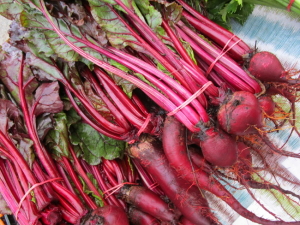 6. They often make radically healthful changes in their diet – away from refined, processed foods towards healthful, wholesome foods. They eat more fruits and vegetables, and fewer unhealthy fats, using plant foods as a major portion of their diet.
6. They often make radically healthful changes in their diet – away from refined, processed foods towards healthful, wholesome foods. They eat more fruits and vegetables, and fewer unhealthy fats, using plant foods as a major portion of their diet.
7. They take vitamins and supplements to help support their health and immune system.
8. They take more time to simply relax and enjoy their life. For many, meditation or prayer becomes an important part of their daily life.
9. They learn to “listen” to their bodies and to surrender to, rather than resist, the day-to-day fluctuations of energy, symptoms and emotions that accompany the healing process. In doing so, they listen to their bodies for guidance for optimally loving and taking care of themselves.
10. They release any sense of guilt about fully caring for themselves. They learn to fully love and support themselves – creating a wonderful life that optimally supports health.
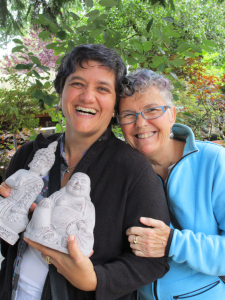 11. They reconnect with their sense of community and reclaim the joy that comes from being of service to others. In healing themselves, they facilitate healing in others. (Friends Tina and Patty in photo.)
11. They reconnect with their sense of community and reclaim the joy that comes from being of service to others. In healing themselves, they facilitate healing in others. (Friends Tina and Patty in photo.)
As the Integrative Cancer Guide says “The study of recovery from incurable cancer is still in its infancy and there is much to learn before we can rely upon our immune system to clear cancer. However, it makes sense to optimally support our own health and healing – there is no downside to fully engaging one’s own health as described – and in doing so we create a solid foundation for optimal healing and health. Integrated with standard treatment, these foundations create an optimal integrative cancer care program.”
To read more about people who have recovered from advance “incurable” cancer, an inspirational resource is Remarkable Recovery: What Extraordinary Healing Tells Us About Getting Well and Staying Well by Caryle Hirshberg and Marc Ian Barasch.







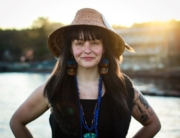
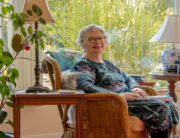


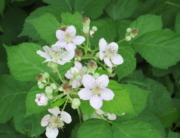




















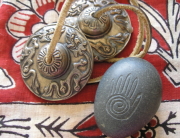


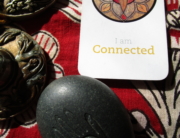


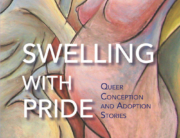

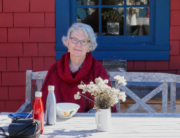
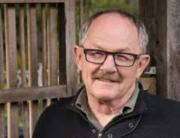
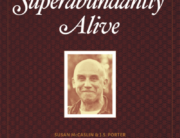













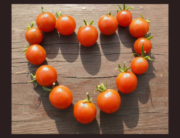





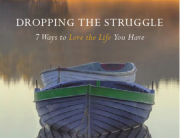
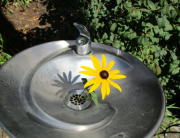
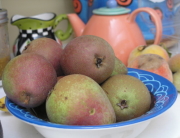


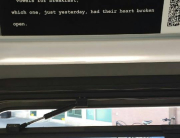









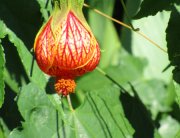
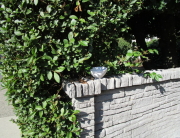




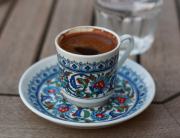
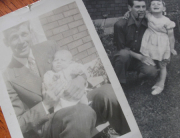











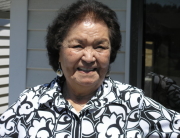





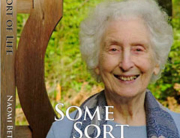

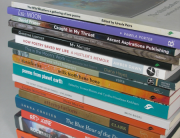

Thank you for sharing this health-essential informative with us. Am wishing you ‘well’ Mary Ann.